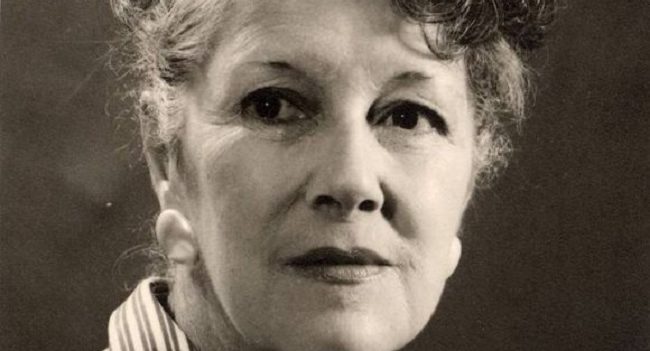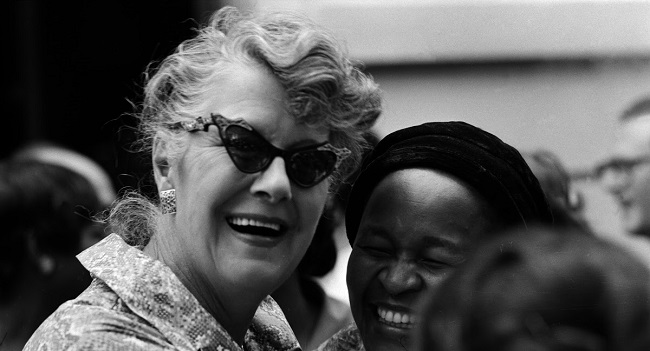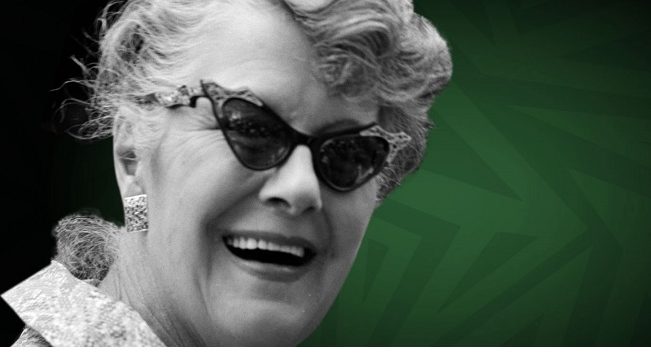Helen Joseph will be remembered in history as one of the lone voices that spoke against the apartheid regime in South Africa. The South African activist left the comfort and privilege of her native country of England and risked her life to challenge a system that was bent on separation.
While many may not realize the danger she put her life in speaking out against apartheid in South Africa, those that experienced it know how dangerous it was to speak against it.
Her life is and the impacts she made cannot be forgotten in a hurry. There are many interesting facts that you should know about Helen Joseph.
Biography Of Helen Joseph

Helen Beatrice May Fennel was born on 8 April 1905 in Easebourne, West Sussex, England. She came from a middle-class English family as her father, Samuel Fennel was a customs and Excise officer. Along with her brother, She grew up in Sussex.
Helen was 87 at the time of her death.
During her childhood, she experienced racial prejudice right from home. This may have been the beginning of her dislike for racism.
She obtained her degree in English from the University of London. She graduated in 1927 from the school’s King’s College London. Her move to India was in pursuit of a career but she was there for three years.
She taught at an all-girls school in Mahbubia, Hyderabad. Helen intended to return home from India and followed South Africa, she settled in Durban and never remained the same again.
See Also: Daddy Freeze Adultery Case and Top 10 Controversies About The OAP
Henry Joseph Marriage
Helen met her husband, Billie Joseph in 1931 in Durban shortly after arriving in South Africa on her way home.
Their relationship though having an age difference of seventeen years led to marriage in the same year. Billie was a Jew, he was also 17 years older than Helen and a dentist at the time.
She and Billie divorced shortly after the war. Their marriage did not produce any children.
Helen Joseph Health And Death
While she never backed down, Helen suffered from cancer and had to undergo surgery in 1971. She narrowly escaped death on many occasions as bombs and her properties were often destroyed.
The cause of her death was linked to a stroke she suffered weeks before her death.
Her frail health led to her hospitalization in 1992. Prisoners that had been released from Robben island raised their glasses to her. She died shortly after on 25 December 1992.
10 Fascinating Facts You Never Knew About Her
1. Helen Joseph Served In The Air Force During World War II
She served as an information and welfare officer in the Women’s Auxilliary Air Force during World War II.
Her time there made her focus her life in a new direction. She was stationed at Pretoria where she taught women about the government system in the country. For the first time, she came in contact with the harsh reality of apartheid.
2. Her Friendship With Dorothy Stubs
Her earliest acquaintances in the port of Durband include Dorothy Stubbs, a school teacher at Clifton school Durban. After they became friendly, it paved the way for Helen’s teaching career at the school.
Stubb’s father, Harry Stubbs was the headmaster of the school and when his daughter was leaving to get married, he offered the position to Helen.
Helen taught at the school from 1930 to 1931.
3. Helen Joseph Trained As A Social Worker

Her time serving with the Women’s Auxiliary Air Force brought her close to the reality of Apartheid.
She later trained as a social worker and devoted her time to campaign for women’s and people’s rights.
4. She Led 20,000 WomenAgainst Government Pass Laws
Ever wondered how women’s day was celebrated in South Africa with the slogan ‘You strike a woman, you strike a rock? Well, on 9 august 1956, 20000 women came out in mass as a rock to speak out against the government pass laws.
To strike their point, they were made up of women from all walks of life and race. Helen was at the forefront as one of the founders of the Federation of South African women.
Do you know that this day is still celebrated as National Women’s day In South Africa?
5. Accused Of Committing Treason During The Apartheid Trason Trial
Alongside other fighters, Helen was tried by the government for treason after the freedom charter was adopted.
She was found guilty of high treason in 1956 and banned from public opposition of the government in speech and protest.
All those accused were found not guilty in 1961 when the trial ended.
6. The First person to Be Placed Under House Arrest In South Africa
Helen was a real threat to the apartheid regime. She broke the record as the first person to be placed under house arrest in South African History. Under the Sabotage Act
After she was charged with treason. She was under house arrest from 1962 till she turned 1985 after 23 years in confinement.
7. Helen Joseph And Nelson Mandela Were Great Friends
It takes one to know another of its kind. During their lifetime, Helen and Mandela were great friends. Stemming from their passion to fight inequality, campaign for democracy and unity, the two became close friends.
At her death, Mandela was one of the most affected. He described her as ‘…an indelible part of our history.
8. Helen Was Active In The Garment Workers Union
She was a firebrand in speaking out against inequality. In Cape Town, while walking as a social worker, she joined the Garment Workers Union.
Not to be stopped, she helped to found the Congress of Democrats which became a close ally of the ANC in fighting apartheid.
A key point of her activism was in 1955 when she read the Freedom Charter in Kliptown at the Congress of the People.
9. She Stood In For Children Whose Parents Were In Prison
Throughout her lifetime, Helen had no children of her own. However, she stood in for children of prison inmates as if they were hers.
Many came to see her as a mother figure and celebrated her on mother’s day. Among the children that she took care of were; Winnie and Nelson Mandela’s children, Zinzi and Zenani as well as Bram Fischer’s daughter.
10. Open Day On Christmas
Every Christmas, she invited other freedom fighters to her home and they toasted their glasses at noon to prisoners held at Robben Island.
Those at Robben island may have learned of the ritual as it showed on the day she died.
Helen Joseph Legacy
The true purpose is fulfilled long after we have left this world. It stands against time in the impact made for generations unborn.
Helen Joseph left her birthplace in England and made South Africa her home. Even at the risk of losing her life, she spoke out against an unjust system that was destructive to lives.
in 1992, Helens was honored with the Isitwalandwe/Seaparankwe medal in recognition of her work by the ANC.
The Anglican Church of South Africa honored her too. It is not uncommon to see buildings, roads, and many sites named after the great woman who left a lasting legacy for generations unborn.
The Helen Joseph Memorial hospital in Johannesburg is named after her.





















Discussion about this post